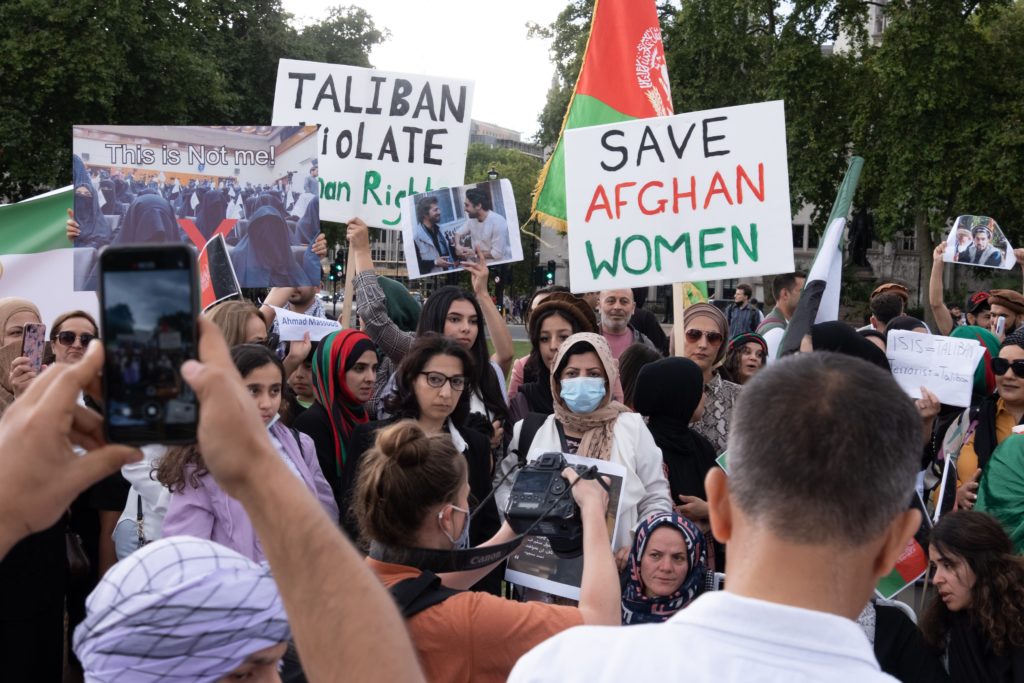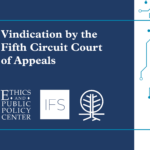
Published September 16, 2021
With the last U.S. troops now gone from Afghanistan, those left to the Taliban’s oppressive rule will soon fade from the news cycle and be largely forgotten about. Those now most vulnerable to the Taliban’s violence are Afghanistan’s women, especially to the violence of sex trafficking and forced marriages. It is imperative to proactively counter these crimes during the earliest stages of this new transition of power.
In the last few weeks, numerous reports have come out about the Taliban’s rounding up young women in Afghan households to serve as sex slaves and forced brides for their fighters. The Daily Mail UK reports Taliban fighters have been going door-to-door and forcibly marrying girls as young as 12 and forcing them into sex slavery, viewing them as ‘spoils of war’ to be divided up among the victors. Last month, reports had emerged that Taliban fighters were asking for lists of all women aged 15 to 45 who were unmarried or widowed.
However, reports are that this has now extended down to girls as young as 12.
Offering “wives” or sex slaves is part of the Taliban’s recruitment strategy to lure militants to join the Taliban. Which only serves to solidify their rule further. Furthermore, the selling and trafficking of these women help to fund and fuel their operations. While the Taliban also support their operations off the opium trade, unlike drugs or weapons, a sex slave can be sold over and over again, and this sex trafficking builds the Taliban’s economic power so they can maintain political power.
There is a critical intersection between human trafficking and illicit finance. Terrorist cells and warlords around the globe fund their enterprises frequently through kidnapping and human trafficking. ISIS has fueled their operations in the Middle East by raiding Yazidi villages in Iraq, stealing an entire generation of women and girls, putting them in underground rooms where many of them never saw the light of day for years, and then selling them sometimes over a dozen times a day to men. Yazidi women and girls were sold to ISIS fighters for between $200- 1500 a day, bringing in a significant income source.
Given the threats posed by the Taliban’s trafficking enterprise, what can be done now that U.S. troops are no longer in the country? Governments do the same thing when they want to dismantle other instigators of war and mass violence – follow the money. Here in the United States, we have an incredible mechanism called Global Magnitsky Sanctions. With Global Magnitsky sanctions, the U.S. can specifically target warlords and terrorist leaders with economic sanctions and render them powerless by cutting off their supply of funding through large and small channels.
Furthermore, the U.S. State Department’s Trafficking in Persons (TIP) Report is an essential tool that ties U.S. foreign aid funding to a country’s human trafficking tier ranking in the report. As The Washington Post reported back in July, Afghanistan was given the lowest ranking, Tier 3, in the 2020 TIP Report for the second year in a row. And just remember, this ranking came before the Taliban took over.
Tier 3 is reserved for countries and territories whose governments do not fully comply with the minimum standards and are not making significant efforts to do so. According to U.S. law, the United States may seek to withhold financing to countries in this category, and they may be denied non-humanitarian non-trade assistance.” A proactive and timely response to the humanitarian crisis in Afghanistan that all sides can support is to enforce these Tier 3 penalties for Afghanistan, now under the Taliban, to protect women and children and root out incentives for the Taliban to be involved in trafficking and in sheltering terrorist groups.
Facing the grim reality that the Taliban will not willingly change their pattern of violence toward women and forcing them into sex slavery, the United States has an opportunity to lead a global effort to place sanctions and financial pressure on the Taliban and terrorist groups operating under their rule to curb these horrific crimes.
Anne Basham is the CEO of Anti-Trafficking International (ATI), the Chair of the Human Trafficking Task Force for the Parliamentary Intelligence Security Forum (PI-SF), and the former Senior Advisor for the Office for Victims of Crime at the Department of Justice. Clare Morell is a policy analyst at the Ethics and Public Policy Center, working on the Big Tech Project. She was also an Advisor at the Office of the Attorney General at the Department of Justice.
Clare Morell is a Senior Policy Analyst at the Ethics and Public Policy Center, where she directs EPPC’s Technology and Human Flourishing Project. Prior to joining EPPC, Ms. Morell worked in both the White House Counsel’s Office and the Department of Justice, as well as in the private and non-profit sectors.












